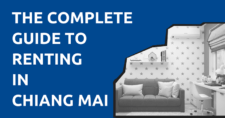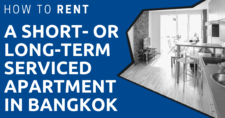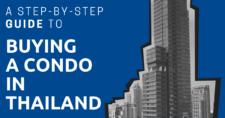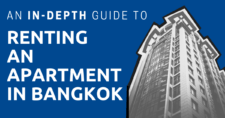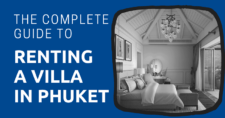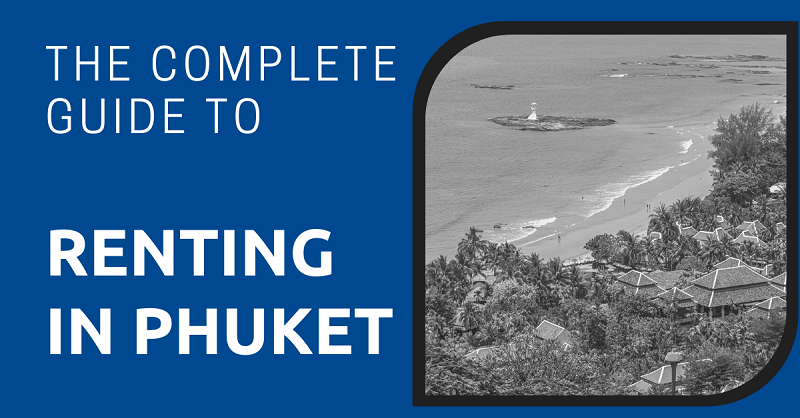
Finding a place to rent in Phuket can be challenging for even the most seasoned Thailand expat, never mind someone who has just arrived on the island or who is planning to visit sometime soon.
After all, there’s so much to consider, like where you want to stay, what size accommodations you need, and whether to rent an apartment, a condo, or a house in Phuket.
Having said that, by the end of this guide, you’ll know where to look for rental in Phuket, the average price for the various types of accommodations, and how to get the best deal.
"*" indicates required fields
Disclaimer: This article may include links to products or services offered by ExpatDen’s partners, which give us commissions when you click on them. Although this may influence how they appear in the text, we only recommend solutions that we would use in your situation. Read more in our Advertising Disclosure.
Contents
Key Takeaways
- The best places to rent in Phuket are usually Patong, Kata, Karon, Kamala, Rawai, and Mueang
- Rental prices in Phuket start at THB6,000 and go all the way up to the hundreds of thousands of baht
- You can rent a place in Phuket by the day, week, month, or year
- Secure a place to rent in Phuket’s low season, this way you get a better deal
- Do a thorough inspection of the rental before ever signing a lease
Best Places to Rent in Phuket
Phuket is Thailand’s biggest island and is divided into three districts, which is further divided into 17 subdistricts. Each subdistrict offers its own unique vibes.
Consider what’s most important to you before deciding where to live in Phuket. Ask yourself:
- Do I want to be close to the beach?
- Is nightlife important to me?
- Am I looking for a quiet area?
- Do I need to live close to work or school?
If possible, you should travel to and explore many of the subdistricts in Phuket before deciding where to rent. That said, let’s take a look at a few different subdistricts popular with expats on the island.
Patong, Kata, and Karon
If you appreciate vibrant nightlife, delicious food, and being close to the beach, subdistricts like Patong, Kata, and Karon may be a great choice.
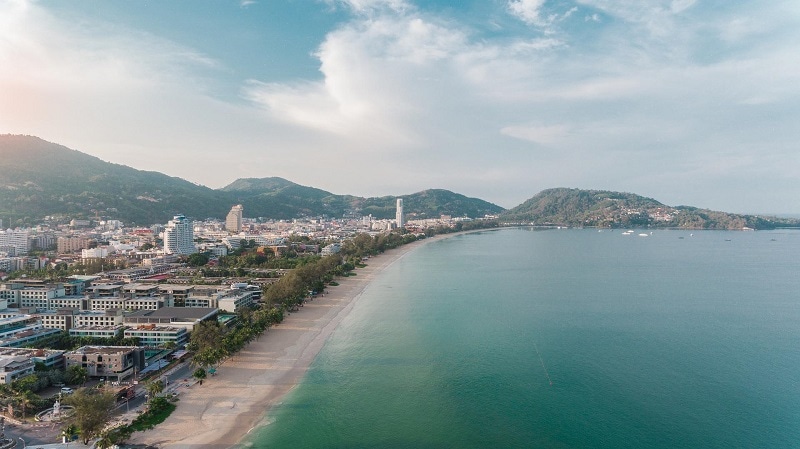
These three subdistricts are populated with tourists. This may not be a concern if you’re here on a short-term stay. But keep in mind the cost of accommodations, food, and nightlife is on the higher side due to all the Thai and foreign tourists vacationing on the island.
Kamala
If you want to be close to tourist areas like Patong, Kata, or Karon, but you prefer a quieter place to stay, then Kamala beach is an excellent place.
Kamala offers beautiful beaches and delicious food. At the same time, it has more of a local vibe and is typically less expensive than tourist areas like Patong and Kata.
Rawai
Maybe you’re looking for a balance between beautiful beaches, great restaurants, and vibrant nightlife.
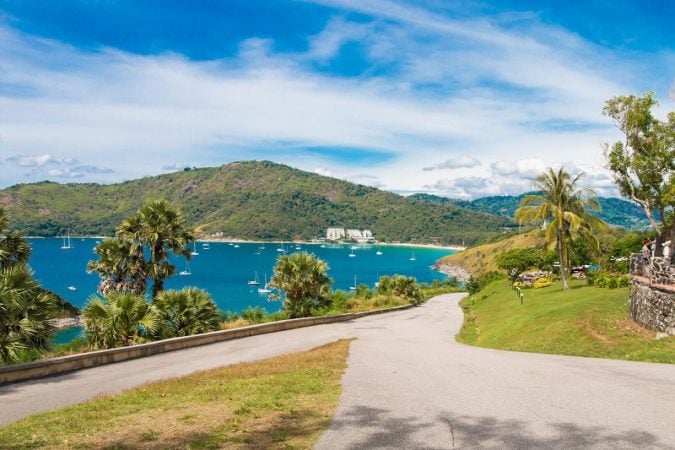
Rawai is an excellent recommendation for a subdistrict with much to offer because of its relaxing vibes. In Rawai, you’ll find many expats who tend to enjoy the simple things in life.
Mueang
If you prefer the city life, Mueang is home to popular subdistricts such as Talat Nuea, where the famous Old Phuket Town is.
You’ll find many conveniences in Mueang such as Central Phuket Festival, dental clinics, viewpoints such as Khao Rang, schools, and hospitals.
Many expats choose to live here for the convenience and lower cost of rent. The main downfall is that Mueang is further from the beach. But if the beach is not a priority, you’ll surely enjoy the convenience of living in the city.
Cost of Rent in Phuket
The cost of rent in Phuket differs depending on the demand and popularity of the location and the number of bedrooms and amenities. I’ve found decent accommodations with rent as low as THB6,000 a month plus utilities. Typically, these are studio apartments or condos and generally come with only basic amenities.
If you’re looking for a condo that’s a bit more upscale, you can expect to pay from THB8,000 to THB30,000, depending on the location, number of bedrooms, and level of luxury.
But keep in mind prices can go ever higher than that for houses or villas in estates. Starting prices generally run at THB50,000 and can go up into the hundreds of thousands of baht.
Accommodations in Phuket
With some of the more popular subdistricts covered, let’s take a look at the popular types of accommodations in Phuket.
Apartments
In my experience, apartment buildings are generally the most affordable option in Phuket. The drawback is that they are typically only offered in studio layouts.
This may be fine for solo living, but it may get crowded for more than one person or for families who travel to Thailand with pets or children.
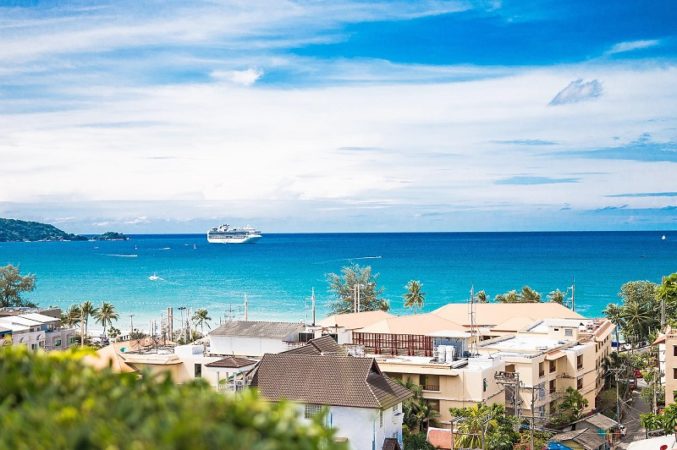
For apartments, you can expect rent to be as low as THB2,000 to THB6,000 per month. But be aware that you usually get what you pay for.
Apartments as low as THB2,000 typically won’t come with AC, Internet, or basic appliances — and they tend to be lackluster. Usually, a THB6,000 apartment will suffice as far as comfort, appliances, and amenities.
Condos
Condo usually come furnished with essential appliances such as AC, refrigerator, microwave, and, in some cases, even a washing machine. Depending on the location, the number of bedrooms, and other comforts, condos can range from THB6,000 to THB12,000.
A condo is an excellent choice for those looking for a comfortable place to live. Aside from being furnished, they may include other amenities such as a TV, Internet, and laundry facilities. Upscale condos may even have a gym and swimming pool.
If you plan to live in Phuket for a long time, you might even consider buying a condo in Thailand.
Houses
When it comes to houses, many things contribute to the cost of rent.
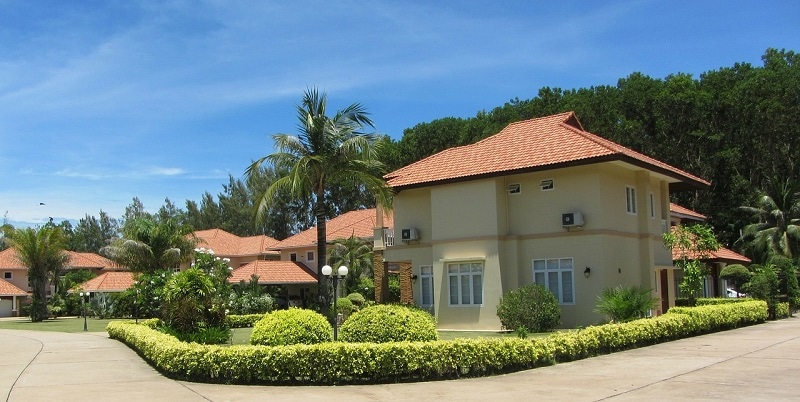
Depending on location, the number of bedrooms, and extra amenities such as a swimming pool and other luxury items, the cost of rent for a house can range from THB6,000 all the way up to THB50,000.
You can even find small houses for as low as THB5,000. However, they’ll most likely not include furnishings, internet, or appliances. You have to provide your own.
If you plan on staying long-term, renting a house in Thailand is a great option. Most houses in Thailand have two to three bedrooms, a yard, and a driveway. The downside to renting a house in Phuket is that you usually have to sign a six-month or one-year lease.
Villas
Villas in Phuket — usually called mansions in the West — differ from houses in that they usually sit on giant estates and are much larger than your standard home.
These mega-houses have private pools and gyms and often overlook one of the many beaches of Phuket. Some of them are even built into the hillsides of the island.
But the luxurious amenities come at a price. Staying in a villa on Phuket could run you up to THB60,000 per night. Yes, that’s per night.
How to Find Rental Properties in Phuket
You have plenty of options when searching for a rental property in Phuket, including real estate agents, Facebooks groups, and websites. Let’s look at the first one.
Real Estate Agencies
Real estate agencies eliminate, or at least minimize, many of the headaches that come with finding a place to rent in Phuket.
Simply tell an agent your specific needs, and she will find you suitable rental properties. The significant advantage of having a real estate agent is that she often takes you to see the rental property and gives you a comprehensive tour.
This gives you an excellent opportunity to ask any questions you may have and a chance to see the neighborhood and local surroundings. You can get an accurate idea of whether the accommodation is suitable for you.
If you want to use a real estate agent to help you find a property in Phuket, you can talk to Philip Property.
Real Estate Agents in Thailand
Find Thai Space
Find Thai Space is a real estate agency in Bangkok that can help you find a place to buy or rent throughout the capital of Thailand.
Contact Find Thai SpaceFacebook Groups
In Thailand, you could find everything you possibly need on Facebook. From motorbike rentals to moving services and, of course, rental properties. Some specific groups you can check out are:
- Property in Phuket for Rent and Sale
- Phuket Rentals
- Phuket Villas, Apartments, Condo for Rent And Sale
- Phuket Expats
- Home Phuket
Always remember, it’s easy for people to pose online as real estate agents. Always make sure the agent is reputable and has a real estate license.
Property Websites
Property websites can be a great tool for finding rental properties in Phuket. They are easily accessible and mostly written in English.
One of the most significant advantages of using a property website is how easy it is to search for properties. These websites offer search filters to help you find what you’re looking for.
Some popular websites are:
On these websites you can filter for things such as location, number of bedrooms, specific amenities like swimming pools and spas, and pet-friendly properties.
Phuket’s High and Low Season
The high season in Phuket is from December to April and offers the best weather. But if you plan to come to the island during this season, the cost of accommodations will be higher.
You can still enjoy Phuket during the low season, but the weather may not be as favorable. You can expect a lot of rain during the monsoon season. But from my experience, you still get a few good moments of clear weather to enjoy all the beautiful nature Phuket has to offer.
If you plan to stay on the island year-round, negotiate a rental during the low season to get the best deal.
What to Check Before Signing a Lease
Now that you found a place to live in your desired location in Phuket, it’s time to consider some other specific aspects of renting on the island.
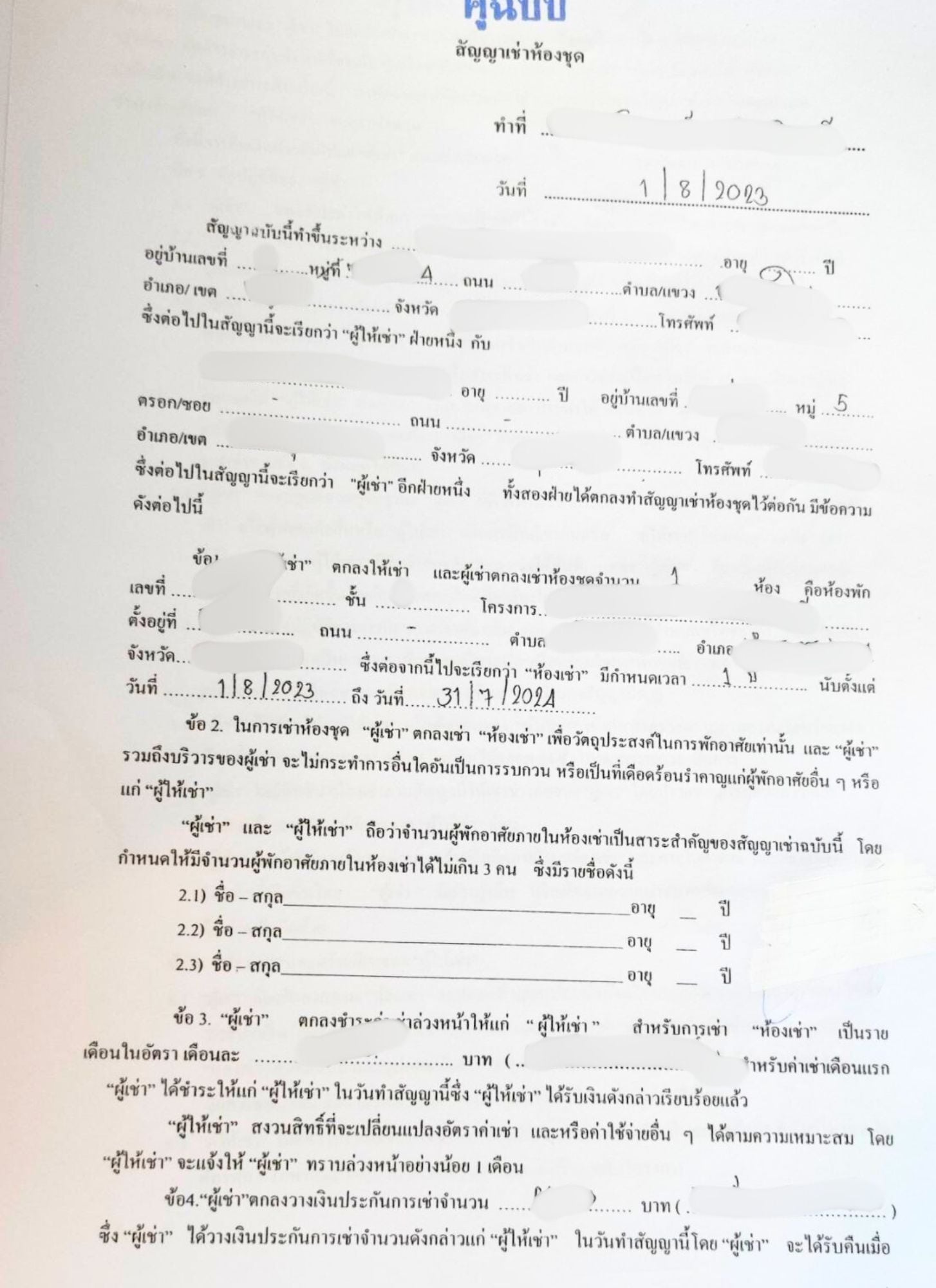
As mentioned above, most rental properties like apartments and condos come furnished with Internet and a TV. At the same time, some houses don’t come furnished, so you have to set up your own Internet service.
That said, make sure you check the following items before signing a lease.
Internet
We recommend checking the strength of the wifi to make sure the Internet connection meets your needs, because infrastructure in Phuket varies.
In most cases, your Internet provider options in Phuket are either True or TOT.
However, if these connections are slow, you could get a SIM card and buy a pocket wifi device and have it delivered to your place. This way, you’ll have reliable Internet every day.
From my experience, apartment buildings in Phuket tend to use one router for the entire apartment complex.
This may not pose a problem. But you may experience slower Internet speeds when multiple units simultaneously use the wifi.
If a dependable Internet connection is crucial to your work or business, you may want to sign up for your own service through True or TOT.
Depending on the property owner, most condos come with individual Internet and a dedicated router for each unit.
This ensures a stronger, more stable connection, unlike apartment buildings that share broadband throughout the entire complex.
Most houses don’t come with Internet service, so you have to provide your own. When looking for service, one thing to note is that Internet providers want a one-year contract for their services. If your lease is a year long, this shouldn’t be a problem. If your lease is less than a year, it can pose an issue. You’ll most likely have to pay extra to get out of your contract.
Appliances
When looking at an apartment, condo, or house in Phuket, check all the appliances, such as the AC, refrigerator, or any others the rental comes with to ensure that they work.
I’ve found that it’s best to rent in accommodations that have newer, more energy-efficient appliances, such as an energy-saving AC. This keeps your electricity costs down — speaking of which.
Electricity
Pay attention to how the lease clauses the cost of electricity. Electricity in Thailand can become quite expensive, especially in the summer when we tend to run the AC longer.
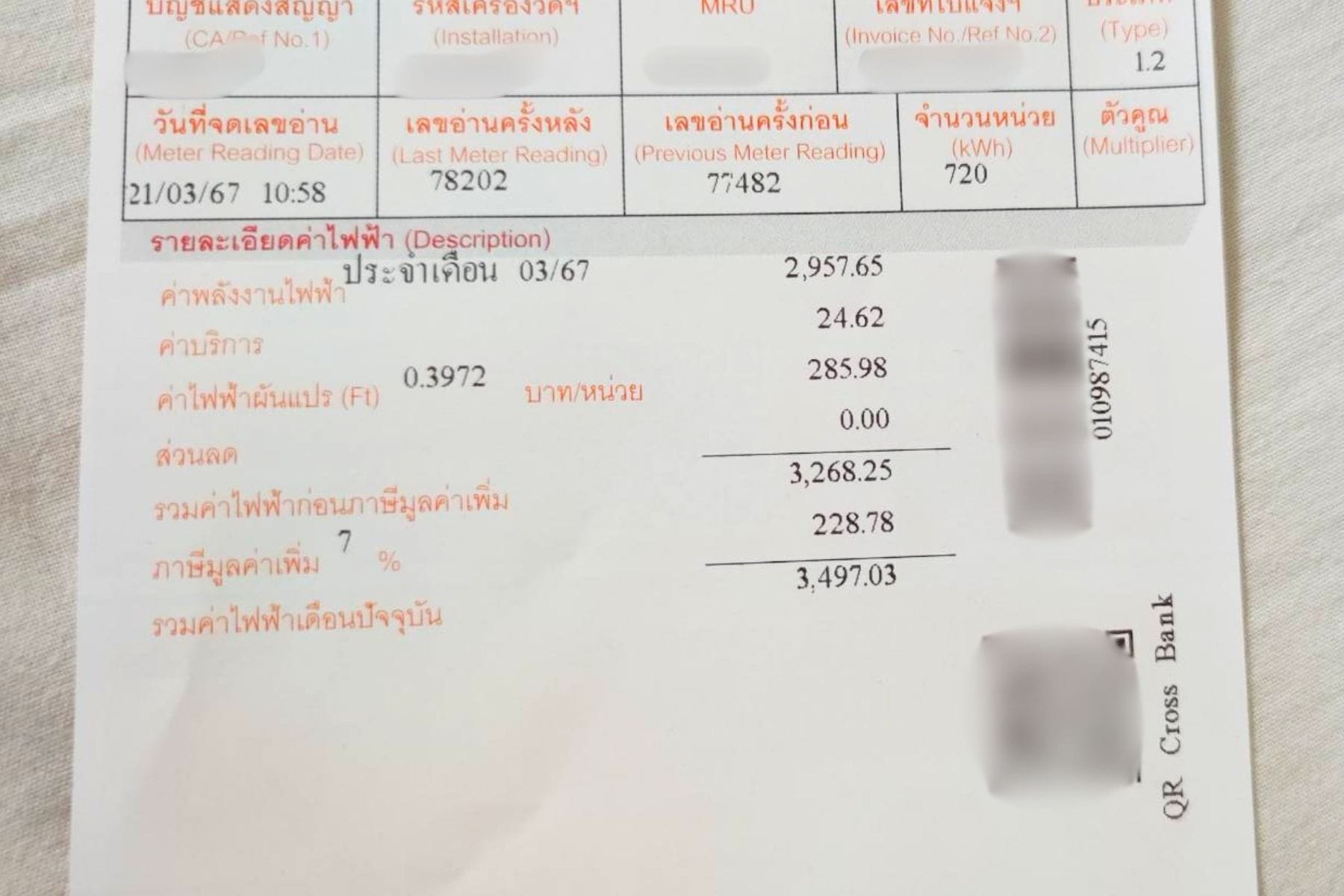
In my experience, during the hottest part of the year, electricity bills can range from THB3,000 to THB5,000. However, this varies depending on the size of your place and how cool you want it.
Before signing a lease, also pay attention to how the property owner bills for electricity. Look for rental properties that charge a standard government rate, which usually costs about THB3 to THB5 per unit of electricity.
Some property managers used to inflate the cost of electricity to anywhere from THB6 to THB10 per unit of electricity. But this is now illegal to do and many of them have stopped the practice.
Water
Water is relatively inexpensive in Thailand. Some property owners charge a flat rate, while others charge per cubic square meter.
You can expect the cost of water to be anywhere from THB50 to THB500 per month, depending on how the property owner charges and how much water you use.
Pets
In almost all cases, condos have a strict no-pet policy, whereas apartments and houses typically allow them. If you have or plan to have pets, dogs and cats are commonly allowed but may require an additional deposit.
Of course, you should check with your landlord or property manager to ensure you can bring your pet.
Lease Terms
In Phuket, you can rent a place no matter how short or long you plan to stay on the island.
Short-Term Rentals
If you plan to stay in Phuket for less than a month, you can find leases for that length. Phuket is no stranger to people coming for short vacations.
Your most inexpensive option is usually apartments that offer week-to-week or, in some cases, even daily rentals.
Other options such as Airbnb and some hotels and resorts provide extended-stay deals, but these tend to be on the more expensive side.
Long-Term Rentals
In most cases, apartments, condos, and houses usually require a three-month lease minimum or, in some instances, six-month to one-year contracts.
Typically, the longer you stay, the less expensive your rent is.
From my experience, apartment buildings are more likely to offer short-term leases, while condos typically offer three- or six-month leases, and houses typically come with six- to 12-month leases.
Monthly Rentals
If you’re going to stay in Phuket for one month, you don’t have to commit to a long-term lease to enjoy living on the island.
There are plenty of properties that offer one-month leases, from apartments to condos and from homes to villas.
Airbnb is a good place to look for one-month rentals because, in most cases, you can rent a property from the website for a maximum of 30 days. SiamRealEstate.com also has properties in Phuket available by the month.
No matter which method you use to book a short-term rental in Phuket, you’ll probably have to leave a one-month security deposit, which you’ll get back at the end as long as all the utilities are paid and you haven’t damaged the property.
Important Legal Information
Depending on the duration of your lease, you may need a valid passport with a visa that matches your lease term. This is important because landlords and property owners are required by law to report any foreign renters to the Thai government.
Leases
Before signing a lease, read over it diligently to ensure all information is accurate, and ask for a copy to keep for your records.
You sometimes get two leases when renting in Thailand; one in English and one in Thai.
You also may have to sign both an English language lease and a Thai language lease. Usually, the Thai version is the official lease.
Deposits
No matter how long you stay in Phuket, you must put down a deposit when renting, usually one or two months worth of rent. This is regarded as your security deposit, as you are liable for any damages while living on the property.
In most cases, you will get all or most of your deposit back, unless you damage the property in some way.
Also, general wear and tear will be considered your responsibility, so you’ll most likely have to pay for things like water-warped kitchen cabinets, floorboards with dings or scratches, and so on.
Challenges of Renting in Phuket
If you’re new to Phuket (or Thailand in general), you’re bound to face a few challenges when it comes to renting. I’ve listed some of the challenges below. But at the end of this section, you’ll also discover how you can overcome them too.
Finding Affordable Rent
Rental prices in Phuket are sometimes the most expensive in all of the country, even when compared to Bangkok. This is because the island offers pristine beaches, a laidback lifestyle, great food, and much more. So don’t sign a lease for the first place you fall in love with, because most likely you’ll find something similar for more affordable — if you keep looking.
Give yourself time, look in different subdistricts, and talk to others who rent in Phuket. Eventually you’ll find something in your price range.
Finding Reliable Information
Another challenge many expats face when renting in Phuket is how and where to find reliable information. Much of the info online comes from rental websites who might be biased. Facebook groups are also littered with fake real estate agents.
Always be sure you work with a reputable real estate agent who has a license. And never sign a lease or put a deposit down without first seeing the place in person, not just online. After all, pictures can be deceiving.
Negotiating Rent
There’s more that goes into negotiating rent than just asking for a lower price. In Thailand, you have to know how to ask for lower rent in a non-direct way. This means waiting until after you’ve looked at the place and sending a text message instead of asking in person. Many property owners in Thailand are non-confrontational and will have an easier time negotiating over text than face to face.
Finding a Real Estate Agent
If you want to hire a real estate agent in Phuket, you have to make sure the agent has your best interest in mind. There are a lot of dubious agents and agencies out there, but there are also many good ones. Ask around both in person and online to find the most reputable ones. I have a dedicated section on this lower down in this guide.
Want to overcome all these challenges and the many others that come with living in Thailand? Become a member of ExpatDen Premium. With immediate access to over a hundred exclusive guides, you’ll find out how to get a job, start a business, manage your finances, and make Thailand your new home.
Final Thoughts on Renting in Phuket
Whether you’re already in the country or moving to Thailand in the near future, I hope this guide has helped you gain a better understanding of how to find a rental property in Phuket.
With some due diligence, you’ll be on your way to calling the island your short- or long-term home.




